As children, we’re taught to stay close and not to wander. We’re told that degenerate strangers are everywhere, lurking in windowless vans, armed with candy bars made of roofies and razor blades. But the need to explore is about 45 seconds younger than humanity itself; it’s why we seek out the farthest poles, climb the highest peaks and dive the deepest trenches. We even fly off the planet entirely. We’re the only species that seeks out far away places even if we have everything we need, right where we are. We explore for a range of reasons – or without any at all. Just to see what’s there.
“The need to explore is about 45 seconds younger than humanity itself”
We lament those who never cultivate that impulse, but perhaps more tragic is when it’s lost. I spent my thirties exploring destinations that displaced me from my cultural and linguistic comfort zones. Locales like Russia, Lebanon and Morocco created unforgettable tensions and moments that helped forge my worldview, character and personality. And then, I simply stopped.
In Which I Stagnate…
Five years ago, a freak neck injury tag-teamed with a pinched nerve to exact excruciating pain that only heavy-duty prescription drugs can salve. I didn’t realize it at the time, but the resultant three months in a hazy, detached state was the embryonic stage of a crippling depression and four subsequent years as a neutered housecat who watched the world from a windowsill. My only vehicle for exploration was a remote control.
“My only vehicle for exploration was a remote control. “
My career began to stagnate. I stopped chasing my passions. I became lazy, bored and boring; an angry, intense, wet blanket. I neglected longtime friendships and failed to make new ones. My sadness became a cave into which I increasingly retreated as I alienated those closest to me and descended to a very dark place. If I hadn’t reached bottom, I was at least circling the block to find parking.
So, of course, I moved to California. I started exercising. I read self-help books to learn how to be “present” and live in the “now”. I saw a therapist. It even kinda worked. But something was missing. The adventurous spirit that predated my malaise still remained dormant. I became determined to wake it from its slumber.
Reclaiming My Explorer’s Soul
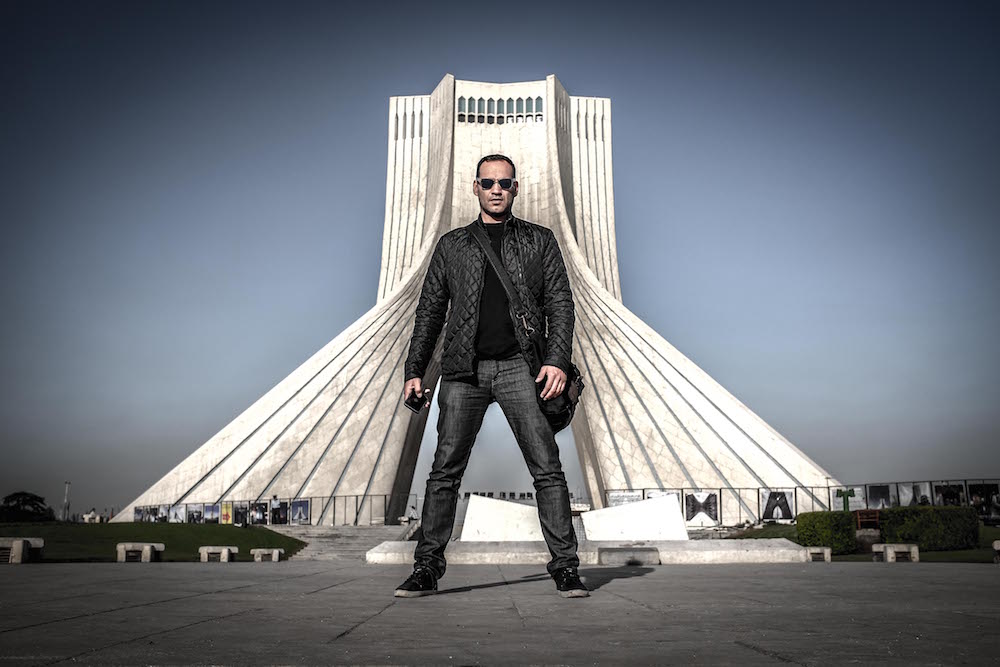
When we want to feel better about ourselves, we tend to visit places like Paris or the Caribbean —effective remedies for the discomfort associated with existential constipation. But in my readings, I came across a quote from Pema Chödrön’s When things Fall Apart that resonated with me:
“Anyone who stands at the edge of the unknown, fully in the present without reference point, experiences groundlessness.”
It’s counterintuitive to want to go to the edge when you’ve just finished thinking about jumping off of one, but that’s what I knew I needed to do to rebuild my self-esteem and reclaim my explorer’s soul; something extreme and radically consequential. There’s a reason why people seek out harrowing experiences: they put us in the now and force us to stay there to survive, potentially yielding enduring mindfulness.
Complete immersion was the goal, but I wasn’t going to put myself in a war zone. And I’m not climbing Everest either. To recover my sense of wonder, I needed to find a place that promised an inherent cultural tension and discomfort. I needed somewhere utterly forbidden.
There’s no shortage of places you’re not supposed to visit – just peruse the State Department’s website. North Korea came to mind first, but as intrigued as I was by everything going on over there, it’s nearly impossible to visit. And frankly, it looks boring.
Choosing Iran
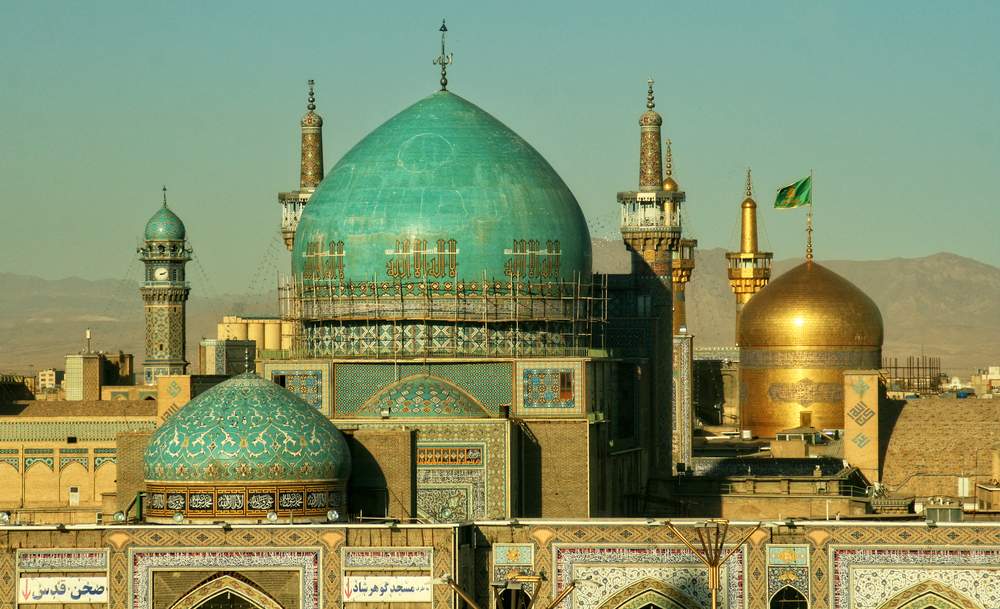
Next was Iran. Anthony Bourdain once called it “a big blank spot on nearly every traveler’s resumé.” There’s a reason for that. The Islamist Republic abounds with human rights abuses, inflammatory rhetoric and hostility toward international law. Since the 1979 revolution, Iran has been the black Shiite-Persian sheep of the mostly Sunni-Arab Middle East; a regional power with influence in Syria, Iraq, Yemen and Lebanon that funds and supplies nefarious, militant organizations under the guise of benevolent, humanitarian aid.
“
Anthony Bourdain once called it “a big blank spot on nearly every traveler’s resumé.” “
When David Frum, a Senior Advisor to George W. Bush, vilified Iran as a member of the “Axis of evil”, most Americans were reminded of 1979, when 66 American diplomats and citizens were held hostage for 444 days by a group of Iranian students who took over the U.S. Embassy in Tehran.
But the Iranian Revolution was 37 years ago. That’s almost an entire Kanye. Today, the nation is trying to build bridges with the rest of the world. It’s always been an enigmatic, misunderstood place, but now it’s trying to remind us that it’s one of the cradles of civilization with an unsurpassed, rich history.
I don’t mean to imply that Iran deserves sainthood status, but if you take the time to objectively understand the complicated and tumultuous relationship that Iran has with the U.S. (and other nations), you can only come away with the conclusion that there are few countries on earth that have been fucked worse by imperialism. Regardless, many Iranians abhor their own government more than any other. “Hatred” for America is spoon-fed to them through government controlled media and propaganda. Most of them just spit it out.
““Hatred” for America is spoon-fed to them through government controlled media and propaganda. Most of them just spit it out.”
In 2013, a British woman of Iranian descent, Roya Nobakht, was visiting family in Iran when she was arrested at the airport and accused of “insulting Islamic sanctities” for posting negative comments about the Iranian government on Facebook. She is now serving twenty years in an Iranian prison, where she has been subjected to physical and psychological torture.
Iran has become notorious for incarcerating foreigners under dubious allegations. It’s just one of the many topics that have made Iran one of the most salient nations in International headlines. This might be the most pivotal time in the arc of Iran’s history – at least since they decided to start making rugs. I had found my destination.
“My mother accused me of trying to send her to an early grave. “
I began telling friends that I was going to visit Iran, partly because I knew that doing so would hold me accountable. I knew that people would question my vacation choice. And they did. To most Americans, visiting Iran is a little like befriending the neighborhood pedophile. My mother accused me of trying to send her to an early grave.
The Chaotic Mess of Tehran
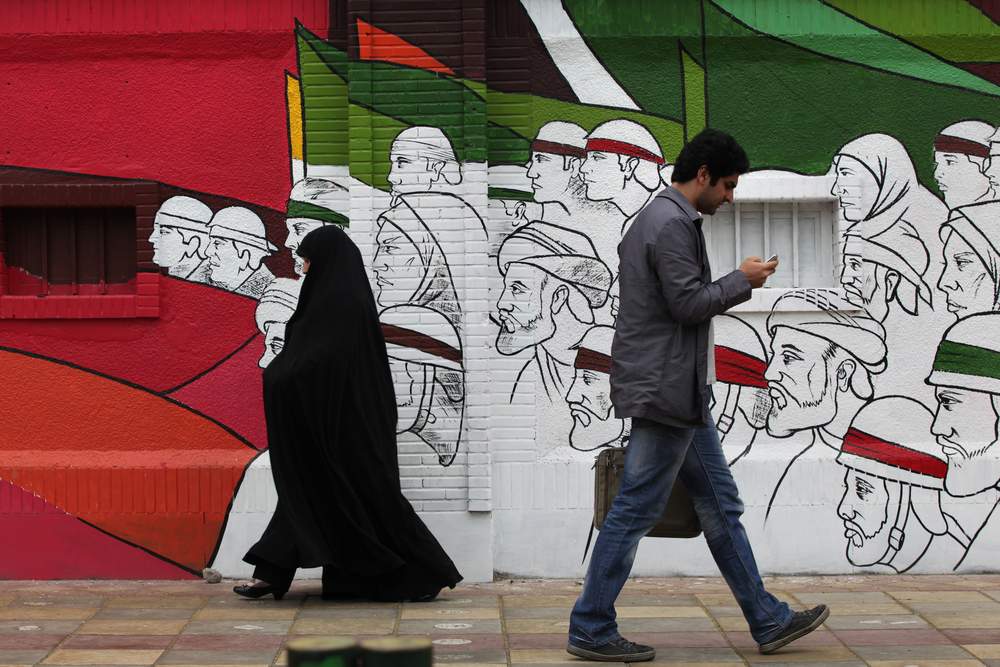
Planning the trip was as mystifying as the destination itself. As a naturalized Brazilian (dual) citizen, I subverted most of the red tape that Americans encounter by traveling with my Brazilian passport. I brought my American passport so that I could then get back into the US, but as far as the Iranian government knew, I was not an American.
Booking a flight was as easy as traveling to St. Louis: LAX to Abu Dhabi to Tehran. Everything else was difficult. Credit cards are not accepted in Iran so I had to take cash to pay for everything – American cash, ironically, is preferred. When I arrived in Iran, I was carrying $5,000. This alone, made me nervous.
“Booking a flight was easy… Everything else was difficult.”
After 23 hours of travel, I arrived in Tehran at dawn. The cultural tension I sought began immediately, because well, I was in Iran. But I was also so engrossed in the experience that any stress or issues from back home just melted away like a snowflake in the Persian desert.
The virtual absence of crime in Iran is also calming – the south side of Chicago this was not. I was at the beginning of a journey that spanned the length of the country; two weeks spread between eight cities with countless miles and driving hours between them. I didn’t know what to expect, and that was the best part.
“The virtual absence of crime in Iran is also calming…”
Tehran was a chaotic mess that reminded me of my hometown of São Paulo. I spent three days sightseeing and getting lost in the city, listening to music on my headphones like so many times dodging rats on the sidewalks of the Lower East Side. Tehran’s familiar, urban setting lulled me into a false sense of security. Persians are incredibly warm and welcoming people – but the absence of Westerners or diversity of any kind, outside of the occasional German or Chinese tourist, enhanced the outsider experience.
Iran is a Country Shrouded in Fear

Immediately, there was something about the place I couldn’t escape: Iran is a country shrouded in fear. But in time, I realized that a lot of that fear was of my own volition. The fear generates a tiresome, perpetual sense that you’re being watched (even in your hotel room).
Iran is one of the most heavily censored countries in the world. Nearly half of the top 500 websites, including Facebook, YouTube, and unbiased news sources are banned, blocked and monitored – though millions of Iranians use a VPN to access them anyway. The thought of posting on Facebook and ending up like Roya Nobakht terrified me. I did it anyway.
“The thought of posting on Facebook and ending up like Roya Nobakht terrified me. I did it anyway. “
Distrust permeates many of the conversations you have with strangers. This causes you to feel each other out like an awkward Tinder date. Compounding this suspicion is a reflexive and visceral sense that something really, really, bad will happen if you say the wrong thing to the wrong person. This is, of course, partly paranoiac – but it’s also grounded in reality.
While Iranians were comfortable opening up to me about government-related public opinion, it took time for them to give me their opinions. And only a few did. Others hesitate because you never know when someone is a snitch; someone motivated by income, revenge or upgraded status in the government. There was one driver that I encountered who I have no doubt is one of those people. When he blasted the US and praised Mahmoud Ahmadinejad, I smiled and nodded in agreement. I also made sure to tip him generously.
But, not everyone lives in fear. When I stopped in front of the former American Embassy in Tehran to take a photograph at a mural of the Ayatollah, an older gentleman stopped and began yelling at it, calling the Supreme Leader a “piece of shit” with near-perfect American inflection. I went over and chatted with him for a few minutes as this American-educated man, now calm, explained how Khomeini had destroyed his beloved homeland.
“I could almost feel his pain when I looked into his eyes as he proselytized about how great Iran used to be.”
I could almost feel his pain when I looked into his eyes as he proselytized about how great Iran used to be. This country with a sophisticated, educated and largely secular population forced into a nightmare situation. A people who’s civil rights and already-limited freedoms were stolen from them under the cover of darkness by turban-wearing thugs, leaving in their place, authoritarianism, with Islam as its proxy justification.
And Then, There’s the Propaganda
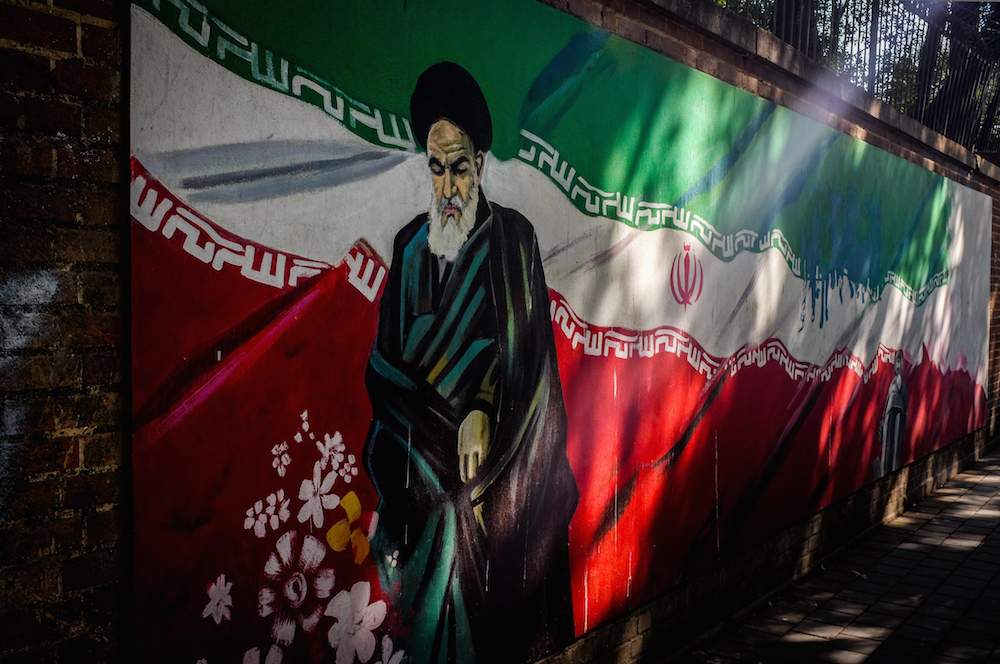
War propaganda (and martyr-honoring posters, billboards and statues) is so pervasive, it would be funny if it weren’t so tragic. In the cities and in the countryside, mysterious camps and militarized compounds are everywhere, many surrounded with barbed wire. Some look unoccupied or dilapidated. Others heavily fortified with a strong military presence, including tanks.
This is a country determined to show off its military might –to the rest of the world and to its own people. This was hardly surprising. When you walk into El Chapo’s office, you don’t expect to see a candy dish on his desk.
“The military presence is a calculated campaign designed to subtly diminutize and intimidate the people.”
Growing up in the home of the brave, you develop a certain reverence for the military. But there is little of that here. The military presence is a calculated campaign designed to subtly diminutize and intimidate the people. It put me in a near-permanent state of subjugation.
Nowhere is this military presence more pronounced than in the beautiful town of Kermanshah. Situated about 150 kilometers from the Iraqi border, it’s in an ethnically Kurdish area threatened by ISIS from the West. Iran is terrified of ISIS and Kermanshah is its first line of defense. As a self-identifying pacifist, this was jarring in ways I don’t plan on experiencing in such severity ever again.
The Mosque is State
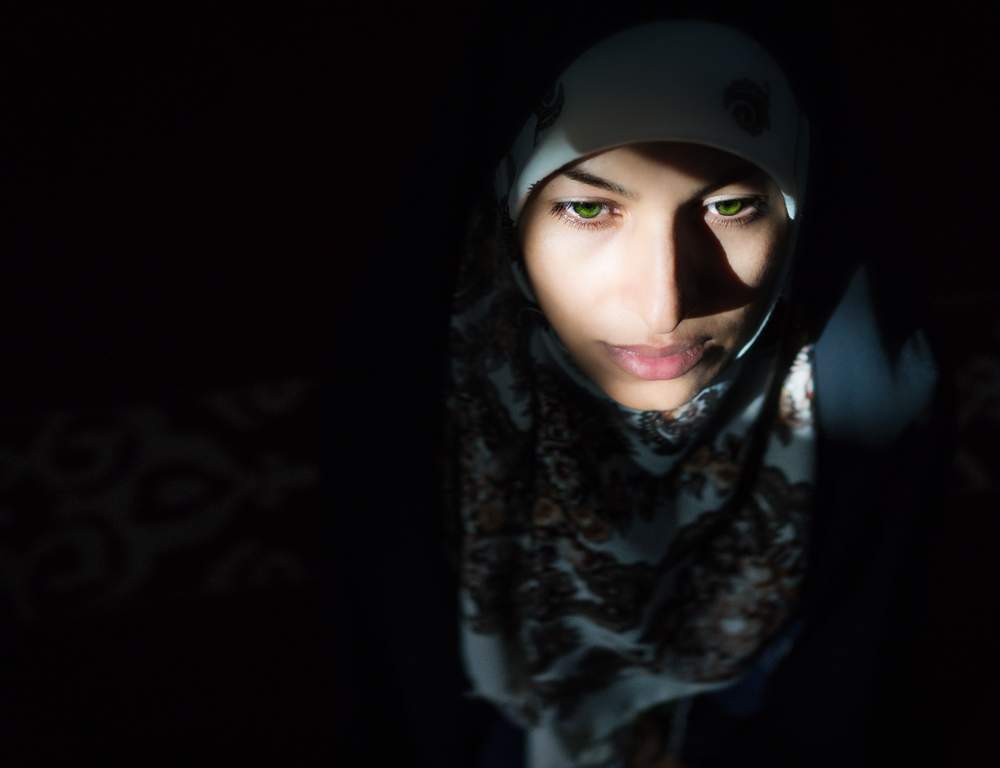
As one would expect in a country without separation of mosque and state, religion permeates everything in Iran, often forcibly. The religious minority helps maintain the status quo, spoiling the party like a bad drunk at a dinner party.
“After a week of feminine deprivation and carnal withdrawal, I, myself, was ready to strap on a bomb for Allah.”
Not one local I spoke with believes that revolution is within the realm of possibility. Islam is most conspicuous in the smaller, more conservative towns.
Iran is a country with a dress code. While men generally dress like Westerners, women range from the least-conservative Hijab, which conceals the hair and neck, to the occasional sighting of a Nijab or Burka, which pretty much covers everything. After a week of feminine deprivation and carnal withdrawal, I, myself, was ready to strap on a bomb for Allah.
“Not one local I spoke with believes that revolution is within the realm of possibility.”
The draconian religiosity began to take its toll on me and I eventually hit a wall. I felt an agonizing homesickness for everything back home, from my apartment to my family to taco night with the boys. The relentless display of Islam in Qom, specifically, drove me to take a day off and stay in my hotel room. With my Kindle as my only friend, I recharged and found the power to carry on. Just in time.
Peak Fear
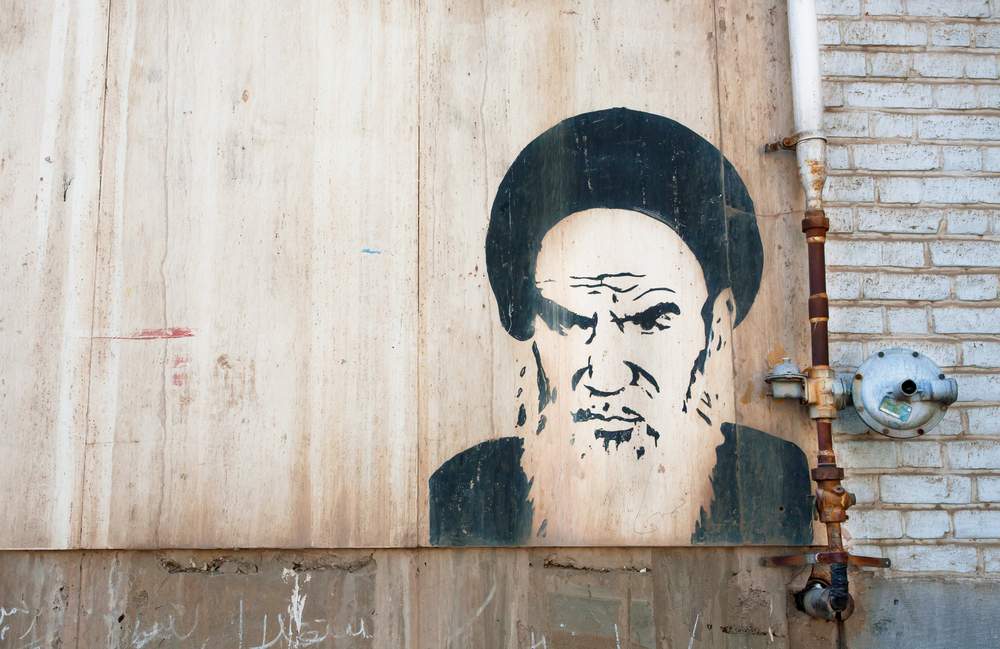
On the drive to a tiny mountain town named Abyaneh, I hit peak fear. Without warning, I approached a compound with an astounding level of security. It was called the Natanz Nuclear Facility, Iran’s largest used for gas centrifuge uranium enrichment.
[section]Nothing prepared me for the agony of the next 2 minutes. I noticed signs forbidding photography as I approached the most intense checkpoint I’ve seen in my life. Camera by my side and unauthorized American passport in trunk, I froze on the approach.
“I settled down and felt a strong urge for a lowball glass of whisky, but I was in the wrong country for that.”
Blessed (and cursed) with a vaguely Middle Eastern appearance, I blended and evaded suspicion but was uneasy for the rest of that day, trembling at the thought of interrogation and imprisonment in an Iranian prison. I settled down and felt a strong urge for a lowball glass of whisky, but I was in the wrong country for that. Involuntary alcohol detox would have to suffice.
After my impromptu tour of the nuclear facility, the rest of the trip felt about as stressful as a tea party with my niece. I continued on to the famous and wonderful cities of Esfahan and Shiraz, where I visited “touristy” sites and ate some of the best food of my life. I chatted with locals, who were fascinated and honored that an American would choose to visit their country.
As my return home to Los Angeles approached, I began to feel the comfort that you typically feel in a small European city. However, full tranquility didn’t return until I was safely through passport check and back in the welcoming arms of Uncle Sam, dressed not in red, white and blue top hat and tail coat, but as an Etihad Boeing 777.
“I can’t say that you should drop what you’re doing and immediately book a trip to Iran.”
I can’t say that you should drop what you’re doing and immediately book a trip to Iran. It’s certainly not for everyone because it can be such an alienating place. While my trip may turn out to be the proverbial “once-in-a-lifetime” experience, I hope that it isn’t because it did something to me.
“It was about conquering a mysterious place in my own way and for my own reasons.”
It didn’t solve all of my problems. It didn’t change who I fundamentally am. It was about conquering a mysterious place in my own way and for my own reasons. But at its heart, traveling to Iran was also about slapping that little explorer in the face. The one who was asleep at the wheel for so long – the one that wanted to go somewhere he wasn’t supposed to, just to see what’s there.






